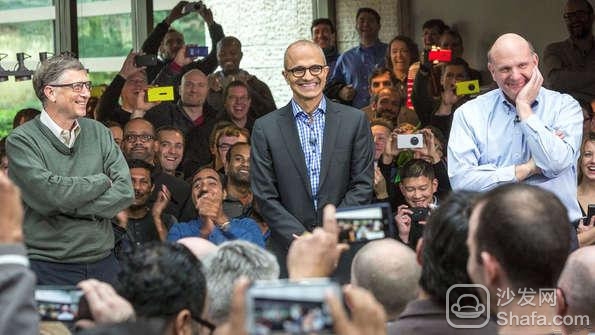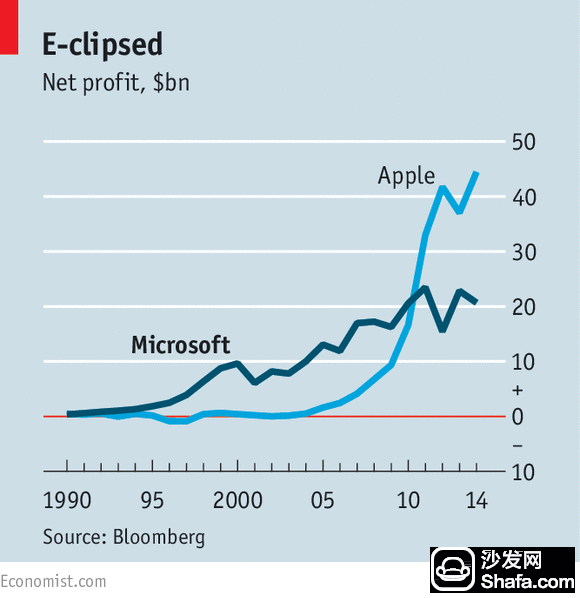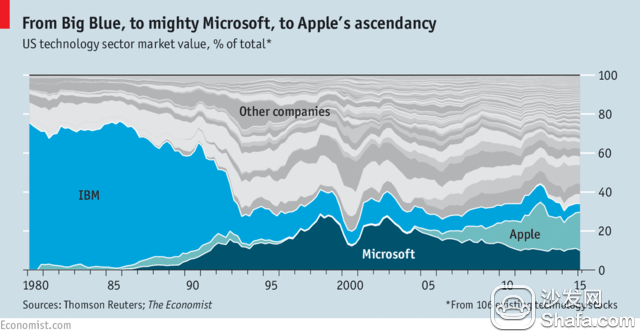spark plug Jinan Guohua Green Power Equipment Co.,Ltd. , https://www.guohuagenerator.com
Microsoft, which is in its infancy, has faced a middle-aged crisis, but under the leadership of the new CEO, they are trying to get out of the woods. 
Microsoft celebrates its 40th anniversary. Microsoft’s co-founder, Bill Gates, is still watching the ship’s course. In the staff letter of the 40th anniversary, Gates said, "Today, my consideration of Microsoft's future is far more than memorizing the past."
In the letter, Gates did not indulge in the past "splendid feats," more of a guide to Microsoft's future. "The most important thing now is what we will do next."
"The Economist" article stated that Microsoft did not suffer a middle-aged crisis, but under the leadership of the new CEO Satya Nadella, they are trying hard to regain their brilliance. .
From youth to middle age
"Which side are you? Do you want to mess up Windows?"
Time back to the 1990s, when Bill Gates was still the boss of Microsoft, as long as there are employees who dare to put forward proposals that may weaken Windows status, he will certainly be criticized. Even after Steve Ballmer took over Gates in 2000, this is still Microsoft's untouchable bottom line.
At that time, everything Microsoft did was to strengthen the status of Windows and continue to strengthen its fortress. Many of the company's innovations were rejected because of this so-called "strategic tax."
Today's Microsoft is already reborn. Whenever the word "strategy tax" was heard, Satya Nadella, the new owner of Microsoft who had been at the helm, reacted a lot. He said he will now encourage all employees to "do what people like." In fact, many of the things he did after he took office will certainly be considered by the first two CEOs as a strategy to "smash Windows."
As Microsoft's most popular office suite, Office can now support operating systems that compete with Windows. The company also embraces free open source software, which has been regarded as the most distasteful thing for Microsoft. At a meeting in San Francisco in October last year, Nadella wrote on a slide: "Microsoft loves Linux." To know, Ballmer used to call the open source operating system a "tumor."
On April 4, Microsoft celebrates its 40th birthday. By that time, the company’s executives and shareholders will surely remember their “losing youthâ€. When Microsoft was born, Captain Tennille's "Love Will Keep Us Together" was popular in the streets of the United States. By the time he was in his 20s, it had surpassed IBM, the leader in the technology industry. However, by the age of more than 30, Microsoft gradually embarked on a downward spiral and was surpassed by its longtime rival, Apple. In fact, Apple is only 1 year younger than Microsoft. 
Trying to get rid of the operating system's "golden rice bowl"
According to Nadella's revival strategy, Microsoft will get rid of the status quo as soon as possible. It will no longer be a company that focuses on Windows, but will transform itself into a global data center network, providing various network services for individuals and corporate users. So far, he has performed well in the early stages and has helped the 12-million-employee giant with an annual revenue of 87 billion U.S. dollars.
Microsoft’s transformation has attracted much attention in the technology industry—some companies are experiencing the same transition, while others are worried that Microsoft may succeed. Cisco, EMC, Hewlett-Packard, Oracle, IBM, and SAP all struggled to adapt to the needs of the new era—in the past, people were relying on desktops or corporate servers in their homes. Now, services and functions are shifting to the cloud. As long as the information of the remote data center can be invoked through the mobile device, it truly achieves "one-handed mastery."
Companies such as Amazon, Apple, Facebook, and Google are keeping a close eye on the rise of new technology "platforms," ​​preventing competitors from developing applications that can snatch away their customers. Because of this, just 11-year-old Facebook recently spent 22 billion US dollars to buy the mobile chat application WhatsApp, also spent 2 billion US dollars to virtual reality goggles manufacturer Oculus VR to its high.
If you think that Windows is all about Microsoft, that's a bit simple. Its accurate positioning before it is a core product bundled with many Microsoft software. After Windows gained the dominance of the desktop PC market in the 1980s, it bundled Office, which is now becoming ubiquitous. With servers becoming the standard equipment for enterprise internal data centers, Microsoft is reinventing itself: it has developed a set of server software that includes both e-mail systems, databases, and a variety of enterprise applications, all of which are tightly integrated with Windows. It is through this method of binding that Microsoft surpassed IBM in the mid-1990s to become the most valuable technology company. 
Ironically, Microsoft is actually one of the first software companies to realize the potential of cloud computing. However, due to indulging in the existing products and reluctant to extricate themselves, this vision can not be implemented. So since the introduction of Azure cloud computing service in 2006, the company has been copying the proprietary software domain bundle model in the online world. This gives major cloud computing providers an opportunity (especially Amazon) to take advantage of this opportunity to sell computing resources and to provide users with a variety of software over the Internet.
Similarly, Microsoft is also the first company to see the prospects of handheld computers. If you think the term "handheld computer" is a bit strange, it is now called "smartphone." Unfortunately, Microsoft still refuses to shut down Windows, so it has been forcing users to run this system on such products without developing a new system more suitable for mobile devices than Apple did.
Prior to being the Microsoft CEO, Nadella was responsible for the Azure business. He reinvigorated this dying service, not only reducing service prices, but also allowing users to select software as they wish. Since the helm of Microsoft, in addition to launching Office software for iOS and Android devices, he has also turned to a “freemium†model: Individual users can use basic software for free (this policy does not apply to corporate users), but enjoy additional services. , you need to pay the fee.
Under Nadella's leadership, Microsoft also showed flexibility in other areas and even reached deals with competitors. For example, the online version of Office, which is Office 365, can now store files on the Enterprise Cloud Storage Service Box. "They used to think of us as dead," said Aaron Levie, owner of the box.
Nadella is also working hard to infuse vitality into Microsoft's internal culture, change its rigid style, and become more like a startup company. Today, Microsoft is no longer blocking good ideas. Instead, it begins to encourage employees to test “crazy ideas†on a public website called Garage. They will even release early versions of the product in advance so that users can try it as soon as possible to help them fix various vulnerabilities. In addition, Microsoft also acquired a number of hot startups, one of which is Mojang, developer of the popular online game "My World." The other is Acompli, an e-mail application developer who has renamed the app Outlook and can be used on mobile devices such as iOS and Android.
However, Nadella’s biggest achievement so far is to give Coherent purpose to Microsoft as it moves into the fifth decade. He summed it up as two slogans, one is "mobile first, cloud first": because these two markets are the source of future growth, all new products must be developed for these two platforms.
The other is "platform and productivity": Microsoft is still an important platform, and Office is still the most important productivity tool. However, Azure is also gradually emerging as a more important and more flexible platform. In addition, Microsoft also introduced Cortana, an intelligent voice assistant platform that is specifically designed to compete with Apple's Siri and Google Now. The company has realized the importance of using natural language to answer user questions. In the future, such services will be more and more forward-looking, and can predict the needs of users in advance - for example, to aggregate various documents for users for a certain meeting.
Talent competition
Although industry observers generally appreciate Nadella’s achievements so far, there are still some concerns. The first is talent. "Microsoft has lost a lot of talented people," said Maco Iansiti, a professor at Harvard Business School. Although the company gained some fresh blood through the acquisition of startups, it still struggles to win in the battle for first-rate programmers.
Another issue is software quality. Rob Helm, an analyst at Directions on Microsoft, a market research firm, said that Microsoft has been trying hard to prove the reliability of its programs to business customers, but as its corporate style gradually moves closer to the startup company, the product is released. The timing is ahead of schedule, and the frequency of release is also accelerating, which has led to a reduction in the reliability of its products - and "reliability" has always been an important selling point for Microsoft products.
It is also worth noting what kind of prospects Microsoft will face in other businesses. Analysts called on the company to spin off these businesses. The Bing search engine seems to be fairly safe: After losing billions of dollars, the business will quickly turn a profit, and it also provides important data sources for Cortana and other services. The Xbox game console has also found its way forward and plans to create a digital living room entertainment center. But after undergoing a series of strategic adjustments, the acquisition of Nokia's mobile phone business last year now appears to be a big mistake.
The biggest problem is also Microsoft's financial situation. As personal and business users purchase fewer and fewer PCs, and the price of PC itself is getting lower and lower, Windows revenue is also declining. In the fiscal year ended December 31 last year, the revenue of this business decreased by 13% year-on-year. Revenue from commercial cloud computing services including Office 365 doubled year-on-year. Based on current speed, this year's revenue is expected to reach $5.5 billion. However, this accounted for only a small portion of Microsoft's total revenue, and the department is still losing money. In addition, Nomura Securities analyst Rick Sherlund said that it is not yet clear how new applications such as Cortana can survive. "The business model has not yet been determined."
These businesses are unlikely to become "cash cows" like Windows and Office. The latter two businesses contribute 44% of the revenue and 58% of profits to Microsoft every year. In addition, the classic Office's gross margin is as high as 90%, and Office 365 is only 53%. Due to the fierce competition from Amazon, Google and IBM, the profits of other cloud computing businesses are not yet clear. Citibank recently estimated that Amazon's cloud computing profit margin is between -2% and -3%, but Amazon has consistently shown its tolerance for losses in other businesses in order to trade for long-term growth.
The biggest lesson Microsoft has left for other technology companies is that it has put too much protection on the pillar business, and it has taken a long time to protect, eventually causing it to ignore some potential threats. Gates may have to bear the greatest responsibility for this. After his succession, Ballmer continued Gates's route and has not responded to the two platforms of mobile and cloud computing. Now that Microsoft's good days are gone, Nadela has to quickly take various measures to cope with the crisis and reshape Microsoft's position in the minds of users, analysts, and technologists. 
Comparison of profit margins between Microsoft and Apple
IBM, Microsoft, Apple Market Value Comparison
Recommended installation sofa butler, download address: http://app.shafa.com/
Hot Apps Recommended: HDP VST All-in-one Fast-viewing film Dragons Live Karaoke King TV Thumb Playing ZAKER